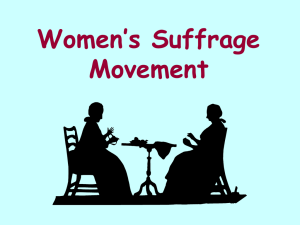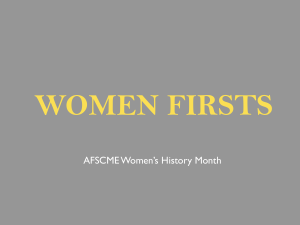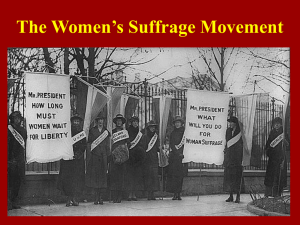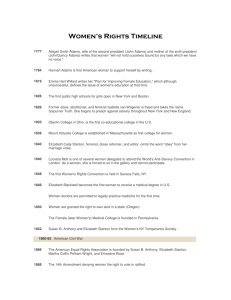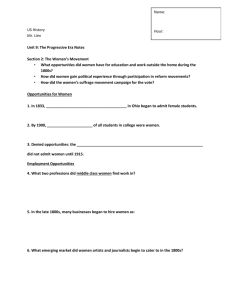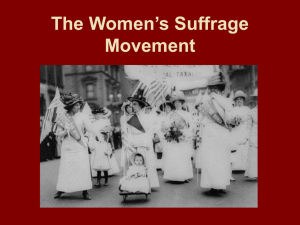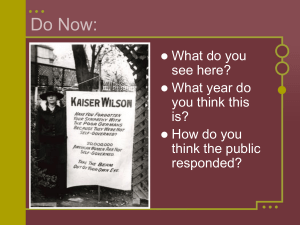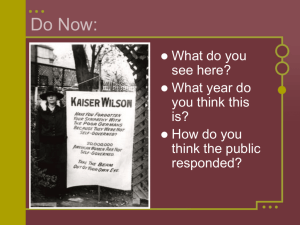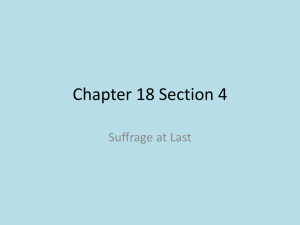Women Suffrage Timeline- Sloane, Demetra, and Hinde
advertisement
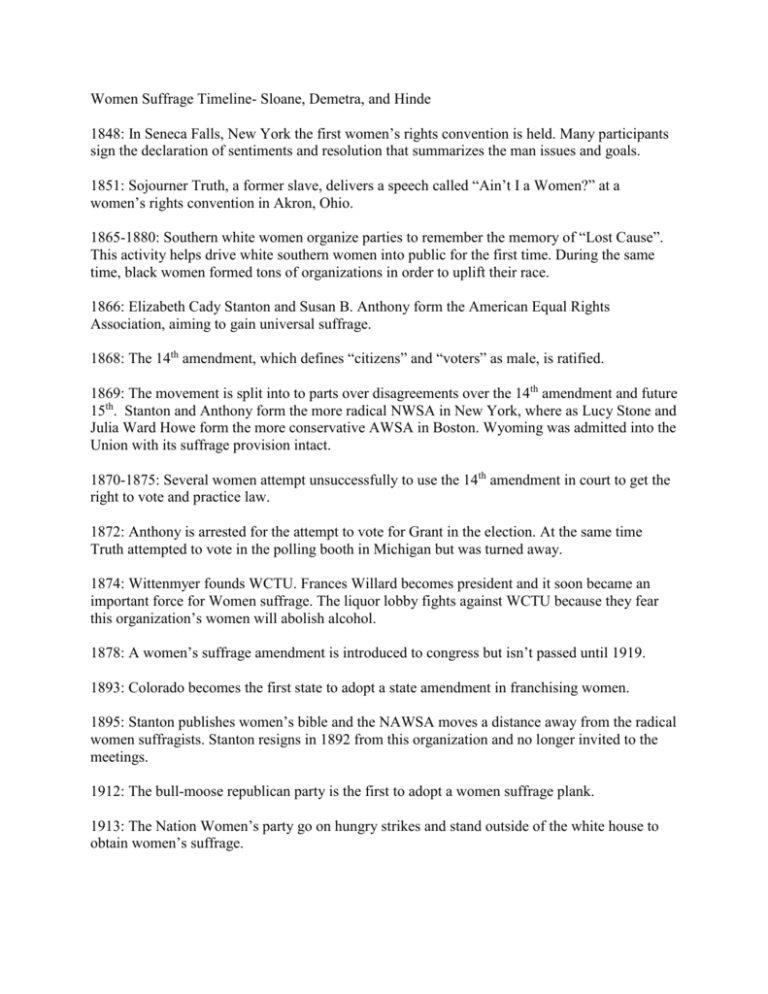
Women Suffrage Timeline- Sloane, Demetra, and Hinde 1848: In Seneca Falls, New York the first women’s rights convention is held. Many participants sign the declaration of sentiments and resolution that summarizes the man issues and goals. 1851: Sojourner Truth, a former slave, delivers a speech called “Ain’t I a Women?” at a women’s rights convention in Akron, Ohio. 1865-1880: Southern white women organize parties to remember the memory of “Lost Cause”. This activity helps drive white southern women into public for the first time. During the same time, black women formed tons of organizations in order to uplift their race. 1866: Elizabeth Cady Stanton and Susan B. Anthony form the American Equal Rights Association, aiming to gain universal suffrage. 1868: The 14th amendment, which defines “citizens” and “voters” as male, is ratified. 1869: The movement is split into to parts over disagreements over the 14th amendment and future 15th. Stanton and Anthony form the more radical NWSA in New York, where as Lucy Stone and Julia Ward Howe form the more conservative AWSA in Boston. Wyoming was admitted into the Union with its suffrage provision intact. 1870-1875: Several women attempt unsuccessfully to use the 14th amendment in court to get the right to vote and practice law. 1872: Anthony is arrested for the attempt to vote for Grant in the election. At the same time Truth attempted to vote in the polling booth in Michigan but was turned away. 1874: Wittenmyer founds WCTU. Frances Willard becomes president and it soon became an important force for Women suffrage. The liquor lobby fights against WCTU because they fear this organization’s women will abolish alcohol. 1878: A women’s suffrage amendment is introduced to congress but isn’t passed until 1919. 1893: Colorado becomes the first state to adopt a state amendment in franchising women. 1895: Stanton publishes women’s bible and the NAWSA moves a distance away from the radical women suffragists. Stanton resigns in 1892 from this organization and no longer invited to the meetings. 1912: The bull-moose republican party is the first to adopt a women suffrage plank. 1913: The Nation Women’s party go on hungry strikes and stand outside of the white house to obtain women’s suffrage. 1916: Jeannette Rankin of Montana becomes the first women to represent her state in the U.S. House of Representatives. 1920: The 19th amendment is ratified and women have accomplished the goal of women suffrage.
